Are You Compatible? INFJs and Relationships
I’ve been putting off writing about the INFJ and compatibility in relationships for a while. Maybe it’s because I felt like it would be a little conceited to talk about how awesome INFJs are in relationships when I am one. Maybe it’s because pretty much every book out there says that INFJs do best with other intuitive types, and I’m married to a sensor. I guess that’s just the kind of rule-breaker I am!
Seriously though, I think a lot of it has to do with the fact that, as I’ve said before, I’m NOT a relationship expert and so I believe that (often) people take the MBTI® too seriously in their relationships. There have been those who question their relationships after finding a chart somewhere that says their type and their partner’s type are incompatible.
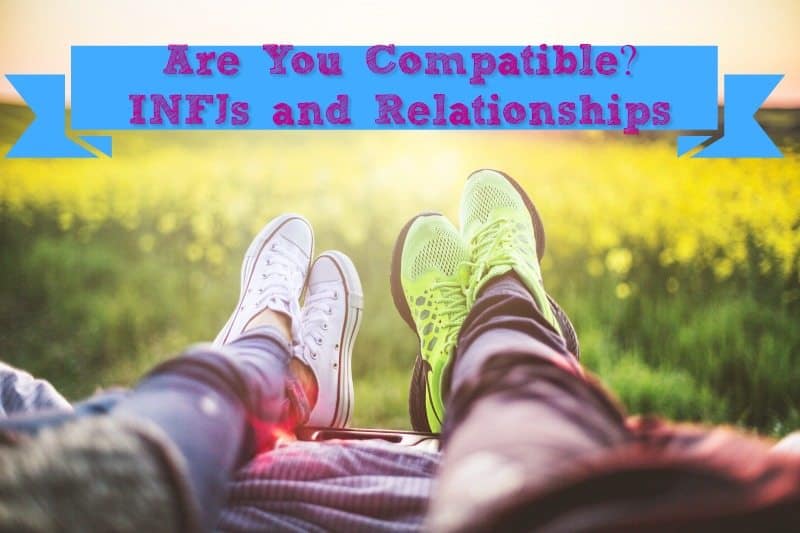
The MBTI® can tell us where potential strengths and weaknesses lie, but it does not say ‘avoid this type / be with that type’. There are pluses and minuses to any relationship, and people within a type can vary so much based on upbringing and environment. Yes, intuitives and intuitives tend to inherently understand each other’s perceptions better, as do sensors and sensors. However, you really can have a happy relationship with any type as long as you both do your best to be understanding and to work on balancing out your strengths and weaknesses.
Not sure what your personality type is? Take our new personality questionnaire here. Or you can take the official MBTI® here.
If you want more in-depth info on INFJs and relationships be sure to check out my eBook The INFJ – Understanding the Mystic
What INFJs Want In Relationships
Is the perfect soulmate too much to ask for? Really? One of the struggles of being an INFJ is that of being a true idealist and a perfectionist. While we are very warm, affirming people by nature – we also tend to be over-achievers in relationships. We want to be the “perfect” partner, and we tend to want our partner to be the “perfect” soulmate. We want someone who will make the effort to truly know us (which can take a while as we’re very private), and someone who will listen to our greatest hopes and dreams and ambitions. An INFJ would passionately cling to a life of singleness over being married to someone, or dating someone, who they feel little passion or depth of feeling for. INFJs are very independent, and while we long for a partner and soulmate in life, we have very little tendency to be desperate or to “settle” for anything less than someone with whom we share a very deep connection.
As David Kiersey so aptly puts it; “Finding that rare person with whom they can share their inner world is difficult for idealists, a painful process of trial and error, and often they vow not to date at all for periods of time rather than go through the search. For NFs, dating someone means more than physical fun or social experience; it is an opening of their heart and mind to the other person, in some cases a baring of their soul, and carries with it both a promise and an expectation of deep regard and mutual understanding.”
In relationships, INFJs usually seek intelligence (both intellectual and emotional), authenticity, and openness. Ideally, since we are always on a quest for personal growth, we want a partner who is seeking this same kind of personal or spiritual growth. We want to see the dark and light side of a person, not just the side you choose to show us. We’re pretty good at detecting phoniness or hidden agendas, so being honest and open is one of the best ways to impress us.
 What INFJs are Like in Relationships
What INFJs are Like in Relationships
I may have painted us to be quite a demanding group of people, and maybe you’re thinking “wow! these people sound high-maintenance!”, but let me add a point. INFJs are extremely loyal and understanding. Once we’ve made the decision to commit to a relationship with you, we will love you unreservedly and passionately – seeing the best that’s in you and overlooking a multitude of weaknesses. We have plenty of our own weaknesses, of which many of us are highly aware. Personal weaknesses are easily overlooked, but if you degrade or criticize one of our deeply held values it’s not likely to go so well.
As perfectionists, we INFJs work hard at our relationships to try to be the best we can be for our partner. We aren’t perfect, that’s true, but we certainly do try to be. We hold ourselves to a higher standard than we generally hold our mates and children; so while we may at times seem too idealistic, we are usually going to be extremely thoughtful and caring towards those we love. We are also (usually) very empathetic and good listeners, and we will do what we can to make sure harmony is maintained in the relationship.
INFJs are often very sincere romantics. We love to express our feelings through gifts; usually gifts with a symbolic meaning, like a beloved piece of music, a favorite book, a piece of artwork. We may write poetry, love letters, or find other ways to show you how deeply we really care. When in love, we often make ourselves more vulnerable than is naturally comfortable for us. This, for us, is a way of being generous and authentic with our partners. It may scare us to tell you that we love you, to write you that poem, or to have you listen to that song that describes how we feel. But showing you, or giving you, these long-locked pieces of our hearts, are one of the most generous ways that we as INFJs can show our love.
Keep in mind, INFJs usually are better at expressing their feelings through writing, than through speech. Many INFJs harbor deeper feelings than they say out loud. A great way of unlocking those feelings is by engaging in letter-writing (not just texting!). In letters or even emails, you will often see a side of the INFJ that they have a harder time showing in person.
So what should you do to make your INFJ happy?
– Be 100% yourself.
– Don’t be scared to think outside the box.
– Listen to our passions and our deep feelings.
– Talk about your passions and/or feelings.
– Have a hard time talking about feelings? Write them down! We love written communication.
– Be kind. We tend to be on the sensitive side.
On a side note, I have officially come to the conclusion that writing about what INFJs want in relationships as an INFJ is awkward. I feel like I’m pointing out all our strengths and ignoring our weaknesses…don’t worry, we’ll get to that!
What NOT to do:
– Be passive-aggressive. INFJs do not handle this well and tend to give up on relationships where they’re faced with this regularly.
– Dismiss our theories or insights. Ni is an INFJs most advanced function. While we’re not always right about our insights, we are more than most.
– Criticize our sensitivity. INFJs are often highly-sensitive people, and things like loud noises, bright lights, and lots of commotion can make us extremely overstimulated. We can also get very overwhelmed and frightened by horror movies (although we may still like them).
– Criticize our intense emotions. INFJs are not good at internally managing their feelings; their unique combination of Ni (introverted intuition) and Fe (extraverted feeling) makes it very hard for them to sort out what’s going on when they experience emotions. Because of this, they often feel overwhelmed by emotions and feelings they don’t even understand. It can become so intense that they become physically sick as a result. Because their feeling function is extraverted, they will easily understand other people’s feelings, but be unable to decipher their own. If they externalize (talk about) their feelings, they are then able to process them through extraverted feeling. So being able to listen, give your input, and not judge is an essential part of being in a healthy relationship with an INFJ.
INFJs and Guardians (SJ types) in Relationships:
INFJs and SJ types usually enjoy very comfortable and happy relationships. INFJs appreciate the stability and responsible nature of the SJ types. The SJs appreciate the warmth, passion, and sincerity of the INFJ. Guardians (SJ types) can feel like a stable force in the INFJs life since INFJs are prone to feeling scattered and of two minds about many things. In turn, the INFJ can add some creativity and intensity to the relationship that the guardian admires and appreciates. These two types will both take the relationship seriously and be very committed to each other. An INFJ usually (not always) will get along better with an ISFJ/ESFJ type than an ESTJ/ISTJ type, simply because both are concerned very much with maintaining harmony and will work to take care of each other’s feelings. ISFJs and ESFJs have Fe and Ti, which INFJs also have. INFJs share no common functions with ISTJs or ESTJs.
However, the MBTI shouldn’t always be a guideline for relationships and many STJs and INFJs have very happy relationships.
Problems arise for INFJs and SJs in relationships often due to the N/S difference. The SJ may tire of the INFJs flights of passion and imagination; and they may see the INFJ as being impractical, with their head in the clouds. The INFJ, in turn, can view the SJ as being “boring”, lacking vision, or being overly traditional. INFJs with thinking SJ types can feel that they are too bossy, or too insensitive to others’ feelings. If they aren’t careful, INFJs and SJ types can work at changing each other too much, to the effect that they both feel unappreciated and let down. It is extremely important to balance out your functions and appreciate the other’s strengths. INFJs would do well to appreciate the SJ partner’s introverted sensing. Admire that they have such an incredible memory and such an eye for details. Learn about their functions and give them the appreciation they deserve. SJ types should appreciate the INFJs vivid insights, and genuine warmth, and generosity.
INFJs and Artisan (SP Types) in Relationships:
INFJs and SP types can have a lot of fun and excitement in their relationships. INFJs appreciate the SPs fun-loving, spontaneous nature. SP types usually have a strong physical presence and are full of action and energy, due to strong extraverted sensing. The INFJ can really appreciate this since their Se is inferior, and their partner can help them to strengthen their Se. In turn, SP types are often impressed by the INFJs strong use of intuition, an area where they are naturally weaker. INFJs love the playfulness, live-in-the-moment, laid-back style of the SPs. In turn, the SP types are inspired by the INFJs depth, passion, and insights. This often is an “opposites attract” type of relationship, where both partners admire the other’s strengths since it is usually an area of their own personal weakness. Someone with weak Se may admire someone with strong Se. Someone with weak Ni might admire someone with strong Ni, etc,..
Usually, the major problems with the SP/INFJ relationships have to do with the N/S difference. SP types often have little interest in talking about their “inner lives”, and would rather be doing something other than talking. While INFJs are abstract and theoretical, SPs are extremely concrete and practical. SPs, more than any other type, live completely in the moment. INFJs live with their thoughts always on the future. INFJs live in their heads, SPs live fully in their bodies – taking in every sensation and being very aware of external stimuli. For this reason, the SP can often see the INFJ as having their head in the clouds or being flighty and unrealistic. The INFJ, in turn, can see the SP type as not thinking deeply enough, or being too focused on the here-and-now without regard to the big picture.
I myself am married to an ESTP so I can tell you from experience that the SP/INFJ relationship can work really well. He is really laid back like SPs tend to be, and that helps me to be calmer and to take things more one day at a time. He is also an optimist (most SP types are) and I’m more of a pessimist, so he keeps me really balanced in that respect. He appreciates my insights and trusts them, and even though he’s a sensor we’ve been able to have some really in-depth discussions about abstract concepts. Being with him has definitely helped me to balance out my Ti and Se functions, and he’s developed more of his Ni and Fe. When we got married, I remember seeing all these charts that said the INFJ/ESTP relationship was a REALLY bad idea. While we’ve only been married for 3 years, I think I can say with relative certainty that we shouldn’t put all our faith into charts, or even compatibility articles or posts like this one! Each pairing is going to have its own unique pros and cons regardless of MBTI® type, and the key is to be understanding of each other and appreciate each other’s strengths, even if they’re very different from your own.
INFJs and Idealists (NF Types) in Relationships:
INFJs do exceptionally well with other idealists. While many types struggle with relationships within their own temperament, INFJs often find that true soulmate with another NF type. Two NF types together can find deep satisfaction because they are finally able to be with someone who truly understands them, which is usually such an elusive thing for an INFJ to find. They will enjoy sharing their inner worlds with each other and will take very good care of each other’s emotional needs. They usually have very intense, romantic, intimate relationships that may feel “too good to be true” many times.
Unfortunately, no relationship is without its struggles – and this definitely applies to the INFJ/NF relationship. An INFJ and another NF type can be so concerned with each other’s feelings that they risk invading each other’s personal space. INFJs are extremely independent and private, and so after a while, they can feel a need to get away and have some of their space back. They can have the same effect on the other NF type in the relationship. The other problem area is that they are both bound to be so intensely passionate about their visions and goals that they run the risk of tiring each other out. INFJs and other NFs are also not known for being particularly good with money and practical affairs, which can end up causing difficulties throughout their relationship.
Sometimes the differences that partners have can provide a balancing/relieving effect to each other. For example, a feeler is getting carried away with their emotions, and a thinker helps them to see things in a more rational way. A thinker is being too tactless in their relationships, so a feeler helps them to find ways to re-word things. Two types in a relationship who share the same temperament may end up “living in a bubble” and become too focused on a narrow perspective of life and how things should be done.
INFJs and Rationals (NT Types) in Relationships:
The INFJ/Rational match is considered by many MBTI experts to be the best pairing. In the rational partner, the INFJ can find someone who, like them, thinks in abstract terms, who sees the world of possibilities, ideas, and theoretical concepts. Yet, unlike another NF, the NT has a certain autonomy and calmness that the NF finds to be intriguing and relieving since INFJs can get so overwhelmed with their own soul-searching and intense emotions. The NT type will likely see in the INFJ a warmth, passion, and sincerity that they admire and desire. Conversely, for the NF type, they see the NT type as being intelligent, intellectually stimulating, and brimming with ideas that are inspirational and fascinating. These two types together can engage each other’s intuition and ideas and can be an unstoppable force for innovation and brilliance. David Kiersey says that the best match for the INFJ out of all 16 types is the ENTP. He says:
“The reserved and schedule-minded Counselors (INFJs), with their complex, mysterious, symbolic inner-worlds, tend to become trapped by introspection and tied in ethical knots, and they can be freed up considerably by the outgoing and probing Inventors (ENTPs). Counselors might also find great satisfaction in trying to help the non-conformist, sometimes even reckless Inventors find their soul and significance in the scheme of things.”
Of course, there are always potential problem areas for any pairing. With this duo, the problems mainly lie in the T/F difference. The INFJs firm belief in their intuition may exasperate the ever logical NT types. The INFJ may also feel that the NT type lacks sensitivity or depth of concern for humanitarian issues. The NT type may find the INFJ overly absorbed in their feelings or in other people’s feelings and may wish for more of a calm, steady partner at times. However, if both types work to stay balanced and healthy and try their best to understand each other, this pairing can be incredibly successful.
INFJ Strengths in Relationships:
– Good listeners
– Warm and empathetic
– Sincere and authentic
– Open-minded and imaginative
– Protective of their partner’s feelings
– Have very high expectations of themselves (both a strength and a weakness)
– Take their commitments seriously
– Excellent communication skills, particularly in writing.
INFJ Weaknesses in Relationships:
– Very private. They can keep part of themselves hidden.
– Detest conflict or criticism
– Not usually good with practical day-to-day matters or finances
– Can hold their partners and themselves to an unrealistic standard
– Can have a very hard time leaving a bad relationship
What are your thoughts?
Are you an INFJ with some insights into relationships and MBTI compatibility? Are you a different type with any thoughts? Let me know what you think in the comments! I’d love to hear from you.
Find out more about your personality type in our eBook, Discovering You: Unlocking the Power of Personality Type.
Sources:
I wouldn’t be able to get very far without the help of these AMAZING books and web pages. If you want to know more about the INFJ, the other MBTI® types, or relationships, check out the sources for this post.
Please Understand Me II by David Kiersey
Just Your Type – Create the Relationship You’ve Always Wanted Using the Secrets of Personality Type by Paul D. Tieger
Personality Page – INFJ Relationships
Personality Junkie – INFJ Relationships (AWESOME web site!)
Get Your Free INFJ eBook
As a thank you for subscribing to my newsletter I will send you this free eBook PACKED with self-care tips, creativity hacks, and more! You'll also get a 3-day email course for understanding your personality type better!


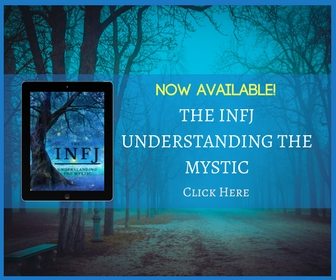
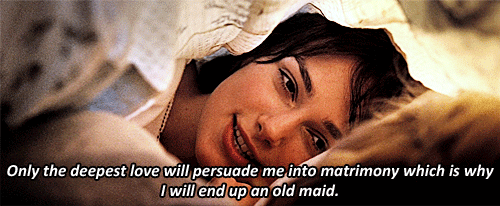
 What INFJs are Like in Relationships
What INFJs are Like in Relationships




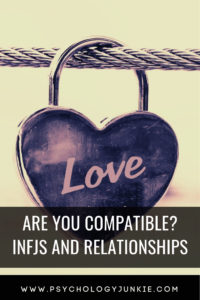


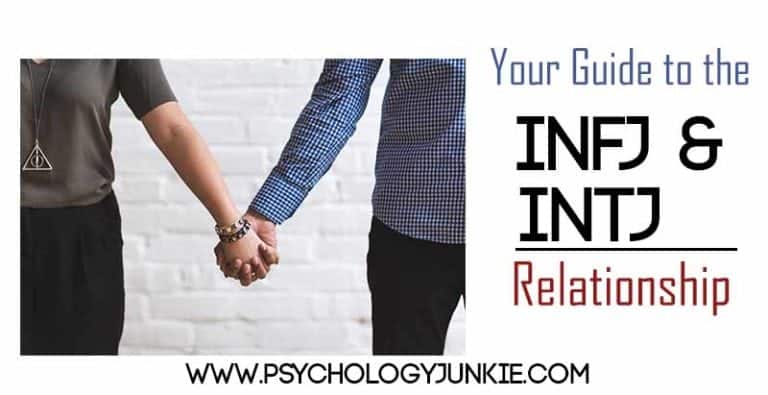
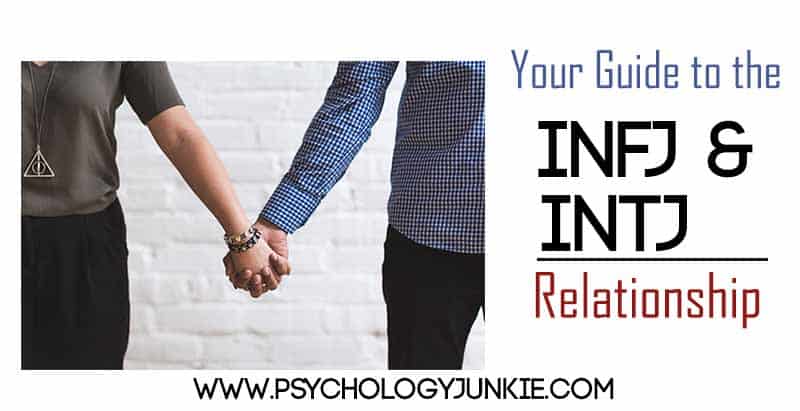


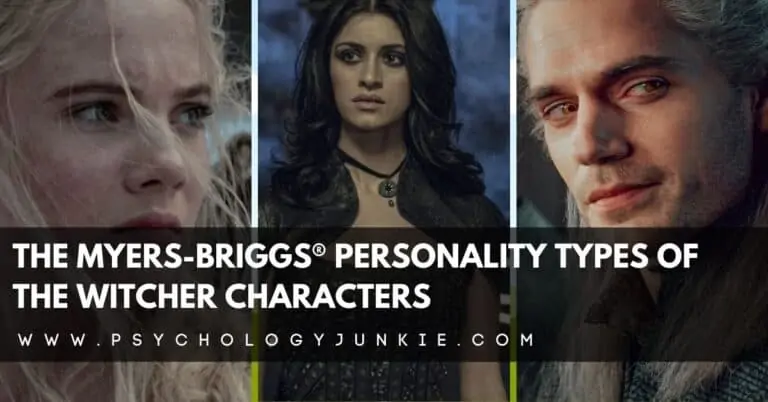
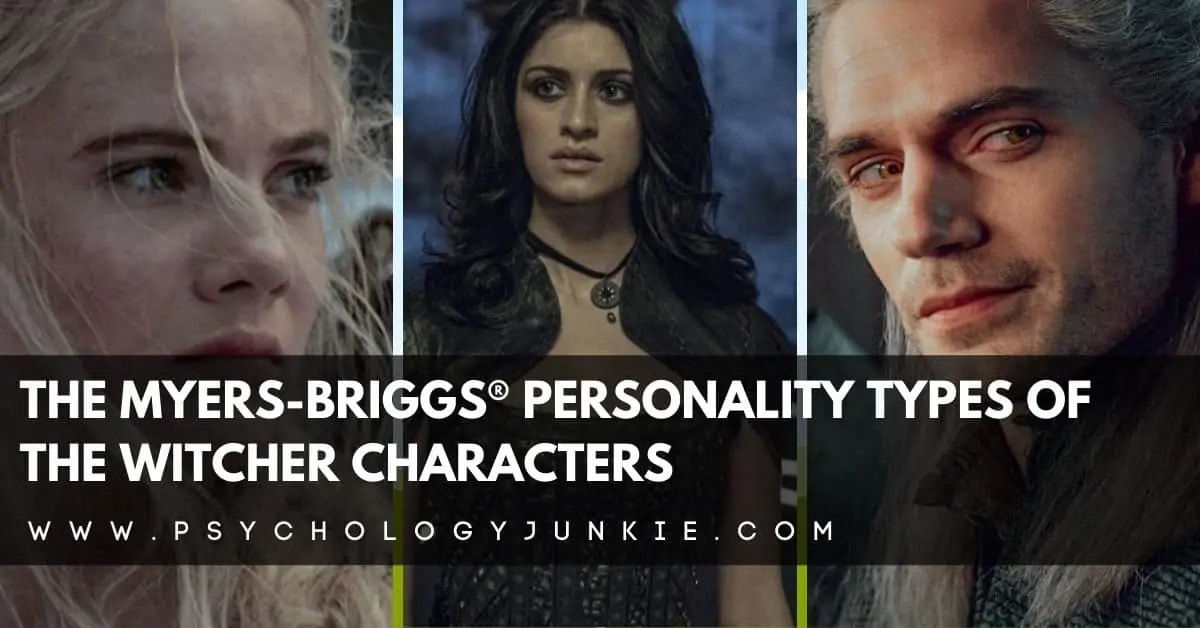


Thanks Susan for the eye opening and precise message. I am an INFJ(Still looking for more of them in my homeland Kenya) discovered two years ago. When was preparing to get married to my wonderful husband.
I sort of type people through our interaction however brief the encounter may be. I type him ISFP.(This is a cousin to your ISTP). I tend to “see” his S. He is far practical while am idealist and keep going with flow keeping his options open while I like to close on my opens and move to implement precisely and with minimal alterations if any.
He balanced me on J/P but definitely our N/S clash is working in progress. Whoever told INFJ everything is for improvement. But I sure thank God for the wonderful man he is.
I really feel compelled to share my experience of the INFJ/ISTP pairing after seeing all the comments in favour of it! I’m a 20-something INFJ who’s been seeing my 30-something ISTP boyfriend for almost seven years. Originally I thought that I was an INFP and that he was an INTJ due to those online personality tests, which I now know can tend to mistype individuals, particularly introverts. Now that I have a better understanding of cognitive functions, I was able to see how I’m really an INFJ, and was able to help him determine that he is an ISTP. And now it’s suddenly like everything makes sense in the way our relationship has been! Sadly, our relationship has been prone to repeated break ups and make ups in the last two years due to poor communication that just got worse and worse with mounting resentment. But now I can see what’s perhaps the reason we were attracted to each other in the first place, and perhaps keep making up: I admire his Se which is my weak point, while he admires my Fe which is his weak point, and thus we subconsciously chose each other for these reasons. So clearly the demonstration of ‘opposites attract’ at work! This weekend we really took the time to understand our personalities and now I can see where his source of frustration with me stems from, and vice versa. It’s really like the light finally came on in the room! Now I’m hoping that with better practice of calm communication to manage conflict better, as well as understanding each other better and accepting each other for who we are instead of staying firmly planted in our own ideas of how we should both behave, we can regain some stability to our otherwise fun, light, and easy-going relationship. I’m so happy to know though, Susan, that it is possible for an INFJ/ISTP relationship to work! I wish continued blessings and happiness for you and your husband 🙂
Thank you, Susan for the great article. I’m an INFJ and reading this made me tear up. I’m not sure which personality type my husband is. Can’t get him to take the test. We get along great and have a wonderful marriage so I will be happy with that.
I would say that this is quite correct when it comes to interraction with other types. I am an INFJ female. I have two male ENTP-friends and a male ENFP-friend. The ENFP is a passionate idealist who feels deeply about his ideas and enforces them with conviction, but he does not always understand exactly how to convince others, I think, because he is too relentless: we often discuss, and I think I manage to get him to see another angle of things, which can help him to convince advisories better and realize that this is actually necessary to accomplish things. I always feel like an equal with him, and we do have a great chemistry. I think we balance each other way, complement each other. The ENTPs stimulate me much intellectually: I don’t council them in the same way as I do with the ENFP, but we discuss and inspire each other, and I have a feeling that they respect me in a different way; that they respect my intuition even though they don’t function like that themselves, and that we have some sort of understanding bond.
I also have two friends being ISFP and ISFJ! (both male) Our interaction is really very uncomplicated and smooth with continuous harmony and no arguments despite several years of relationship. Very calm and relaxing.
Thanks so much for sharing your experience and feedback! It’s always very interesting to me to see how the different types get along and how they enjoy each other’s company. I firmly believe that any type can get along with any type, there are just different challenges along the way and some types will ‘get’ each other more quickly and more deeply than others will initially. Thanks again for sharing!
Hey, Susan!
I absolutely loved your post! Coincidentally, I am an INFJ and my husband is an ISFP! 😀 Our relationship was pretty bumpy at first, but we blame this on the fact that we were very young (we started dating in high-school, got married after 13 years together). Now, it’s simply amazing! I know that the best type for me would be an ESFP and for him, an ENFJ, but honestly, we wouldn’t even imagine a life with an extraverted person, so we’re pretty happy the way we are 🙂
Thanks for the post, it was really like reading my own soul, when I read the post 🙂
Raluca
Thank you so much Raluca! I’m so glad you found it encouraging! That is so cool about your husband and you being high-school sweethearts 🙂 Every single couple I know that started out as high school sweethearts has done SO well together. I’ve also been curious how the ISFP and INFJ relationship works out! It seems like it would definitely be a complimentary pairing in a lot of ways.
Again, thank you for the encouragement and for reading my blog! It’s always fun to read other INFJ’s experiences 🙂
Thanks for this post, and the blog in general! I am an INFJ and I dated an ISTP for three intense months and all I can say is “Where is my ‘I Survived’ t-shirt?!” Haha. You are very fortunate to have found an ISTP that respects S/N difference and saw it as a strength rather than a weakness.
In my experience, the novelty of opposites was so amazing and I could see very clearly everything that the two of you experience as you described it; however my ISTP wasn’t convinced and broke it off out of the blue (ok..not really out of the blue– my Ni could feel something coming but I couldn’t figure out why or when in the moment). He’d decided that it (the S/N) was the reason we couldn’t be together, and even when I did figure out what was happening and why (he was in the grip due to work stress and we were spending way too much time together), his mind was already made up and his inferior Fe turned him into what I could only describe as an “emotional terrorist”. It was devastating because I couldn’t protect myself, I was so hurt. A while later I guess he turned back into a human (LOL!) and reached out to me (which I also saw coming but hoped he wouldn’t actually do), but by then I had finally moved on (I felt so sick for a long time, but I made it through). I learned sooo much from the experience on how to respect my delicate Se and not overuse my Ti, and also to not apologize for how my Ni and Fe work, which he’d criticized. I spend a lot of time working on strengthening my Fe and building much needed boundaries and more awareness of my own feelings; I can’t imagine getting involved in something like that ever again, so I’m definitely grateful for the experience.
Anyways, after healing I serendipitously met an INTJ and now I couldn’t be happier! Spending time with an Ni dominant is like being lost in the Bermuda Triangle, finding a piece of me I never knew I lost and never wanting to leave, haha! We just have our own little Ni island in our heads, away from everything. It’s so funny because I have dated a lot of the different types and I have never felt so in sync with someone until the INTJ. Seriously Leveled Up! We are either spending hours mind-melding about complex issues (world peace, long lines at the grocery store, the usual stuff lol), or just enjoying a peaceful silence just so happy to have another person around who “gets it”. The question “Where have you been all this time?!” often pops into our heads when we converse.
I do agree with the sentiment though that it really depends on who the person is, their goals and needs in life, and not just their type. If you both want to make it work and are willing to try, no matter the type it will be just fine 🙂
I’m an INFJ and been married to an ISTP for going on 13 years and this is my perspective on my ISTP man. 🙂 I was only 18 when we met and his calm directness and (for lack of a better word) quiet dominance, is the initial thing that drew me to him. We are both over 90% introverted but our N/S, T/F, /J/P are as opposite as you can get. For example, during our renovation, we had trouble with the hot water not coming out of the shower and one day I walked in to find the shower faucet in about 20 pieces. Like, tiny tiny little pieces. There was nothing written down, nothing in any order of how it went or anything. I said, (in my moment of panic at his lack of forethought on the process) “You’re never going to remember how to put all that back together!” He just laughed, and a few days later, our faucet worked. Sometimes it takes him a while, but he can fix things that I would have otherwise thrown away or just replaced. When I would think about all the possible ways to do something, then do it, he just does it first, then adjusts whatever he needs to in order to fix it.
I love that he is my “grounder” when I feel like my emotions are going to explode. If I think I am bringing too much emotion into a situation, I’ll ask his opinion and yes, most of the time, he does the are-you-serious-look and tells me yes in his sarcastic/slightly funny way. He makes me laugh and roll my eyes at the same time. It does get frustrating sometimes when it appears that he doesn’t care about things as much as I do, but I’ve known him long enough to know that’s not always the case, he just has different reactions to things than I do. Sometimes, if I talk too much for him to process, he will start to verbally shut down, but he is still listening and absorbing everything. I have learned that he may not be able to repeat things word for word, but he gets the overall aspects of what I have said. I have also found he is capable of understanding if a situation needs more emotion, he just can’t express it the same way. I seem to get myself into too many stressful situations because I want to help people. I rarely if ever say no, no matter how overloaded I am if I think I can help someone, so I have learned to first ask his opinion on it because he can easily gauge whether or not it will burn me out. Neither of us like conflict, so any issues are dealt with quickly.
One thing I have always found interesting about us is, I have an aversion to touch from pretty much anyone, except him (and our kids). Like, I don’t do hugging, or rarely shake hands unless it would hurt someone’s feelings not to do so. I fear social situations where this is the socially acceptable thing to do (weddings, funerals, family reunions). My husband has the body language of a sniper and people literally just do not approach him, except maybe for a simple, quick hand shake. It makes me envy him lol. I have a few family members who like bear hugs, and that seriously makes me cringe just thinking about it. But, it’s almost like I crave touch from my simple yet complex ISTP, like some form of touch addict. I would LOVE feedback on this because I am seriously starting to wonder if that’s a normal reaction to his type or if it’s just me. (The image of myself cautiously approaching a leopard, and being shocked and secretly pleased when it lets me touch, comes to mind.) Don’t get me wrong, my husband isn’t really a dangerous type man. He wasn’t military or police and his day job isn’t particularly dangerous, but those things don’t seem to matter. It’s how he holds himself. He is so together, and I am so…NOT. But I do feel my tension and anxiety start to dissipate as soon as we have any physical contact.
I will say that, with regard to the image that an ISTP will get bored and move on because they don’t like commitments, it is something that I have often worried over. When I say this to him, he just says, “I won’t ever get bored with you, you’re like multiple people in the same body. It’s like a 2-for-1 deal.” And as usual, he has a sarcastic yet funny comeback that puts my mind at ease for at least 5 minutes. 😛
Our biggest issues are usually emotion based but they get better every day. I will say that I am more dependant on him than he is on me. I feel like the more clingy person, which he doesn’t seem to mind as long as his needs are being met. He drives me insane a lot but he makes me feel normal a lot too. Which is of course a HUGE deal to me. It really is a sort of 50/50 type relationship for us most days, but then there are days where it’s 100/100 and those are the days it is so worth it to be with an ISTP. 🙂
B,
I loved reading your comment! I have been with an ISTP for a year and a half (it feels like so much longer though, in a good way), and reading this post as well as your comment give me so much hope. My ISTP and I have been learning so much about each other since I’ve started to really dig into what it means to be an INFJ. I’ve never felt a connection with anyone like I do with him, but we have definitely hit several road blocks that scared me. Oh, also we met in CO, but he had to move to MD last December for work; that adds another layer of complexity to the whole thing! Your info helps! And what you mentioned about your husband saying he’ll never get bored with you made me laugh, because it sounds exactly like something my ISTP would say to me. I have a question for you: You are able to claim that you know you are clingy-er than he, but doesn’t that ever bother you? How did you get to be alright with it? I often deal with that, and get to feeling like maybe it means he doesn’t love me as much as I him. He and that tiny voice of reason tell me that I know that isn’t the case. But my emotions which of course win over tell me to feel bad about it.
I have read on this Website – http://www.misterp.ink/wp-content/uploads/2016/04/INFJ-Infographic1.jpg – that the INFJs are “romantics with dirty minds”. Is it true? How is considered our sexual lives?
I am an INFJ and my husband is ENTP. I truly feel like we are soulmates. We feel such a deep connection to each other and talk about that regularly, which in turn deepens the connection. When we first started dating, I didn’t actually think we were dating–it was just so fun, easy, and effortless! He’s my best friend and we talk about absolutely everything. I love that. Your article was right in that I find him to be very intellectually stimulating. You were also correct that he gets annoyed sometimes when I rely on my intuition. When I say I don’t care for a person I just met, he says I judge people too quickly. And I’m like, “Yeah, I’m INFJ–that’s what we do!” But anyway, 12 years later and we’re still head-over-heels for each other.
Alternately, I can’t imagine being with another Introvert (I’m ~60% introverted). I feel like I would get bored. I need to have someone pull me out of the house to do fun and exciting things. There are certainly times when I absolutely don’t want to be social and my husband is very understanding, but he’s also dragged me to some things that I never would have gone to otherwise. As they say, some of the best experiences happen outside of the comfort zone. (And if it wasn’t the best, it usually makes for a great story!)
Thanks for the article–it’s interesting to take a peek into other INFJ pairings.
I wouldn’t usually comment on something like this… but I felt like saying two things (ends up it’s three, but every essay needs a conclusion and a Very Snappy, Happily-Parenthesised Introduction). I am almost definitely an INFJ.
Firstly, in relation to ISTPs and INFJs… there was one site I read awhile back that said that INFJs [often] have a fantasy of being ISTPs (I could be wrong that it was ISTP, but I think I am not). I am curious if that would influence an INFJs desire to be with an ISTP if they met one. The thrill of at least being close to someone they respect and wish they could be like. But, I suppose, I can ask you if you find this to be so in yourself. I certainly have; reading that was very striking- a HA. YES. moment.
Secondly, my closest friend [thinks she] is an INTJ (I think so, too, consequently). What you said of INFJ-INTJ relationships makes sense in my experience. I seem to be quite a thinker, as well, and I love learning pretty much anything, so we get along very well, and learn from each other, and together about New Things. My mind conjures an image of Sherlock-Holmes-and-Watson-esque variety. It is probably true, if I am not as much a Thinker as she is, that I long after being that type of person, as well as wishing I were a bit of an adventurous risk-taker.
In what I’ve been reading on your site so far, INFJ really does explain the feeling I’ve had about my social life ever since I thought about what I felt. I find it hard to call someone a friend. Almost everyone I’ve met in more recent years is very liberal in labelling a person ‘friend’, which confuses me (only emotionally, not rationally) because I ‘feel’ they must have some valid reason for calling me ‘friend’, but I don’t see what they’re on about. I don’t easily respect people who call me ‘friend’ with Reckless Abandon, because they obviously can’t tell I don’t see it that way, and if they can’t tell that, then I’m not sure if they can tell anything else about me. But we’ll see. I will hold out for them in case the tides change. It is not my job to dictate the Future of Humanity.
(Now, for Amusement Purposes in case you comment back, I am curious if you can see in my writing what may be ISFJ and maybe, just maybe, ISTJ or INTJ tendencies. There are some descriptions of these other types that I identify with strongly, but only some, which… well… is a wonderful little puzzle that I’ve been ruminating over for six years or so. May be explained in being well-developed. May not.)